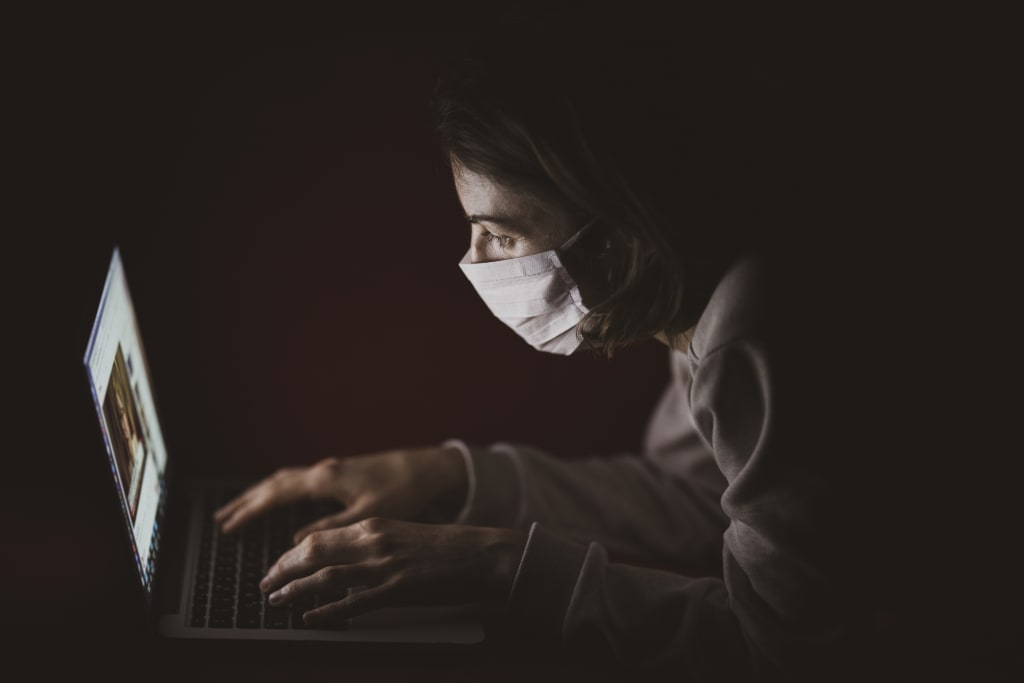
The COVID-19 pandemic has undoubtedly left an indelible mark on our lives, affecting not only our physical health but also our mental well-being. As the world gradually recovers from the grips of this unprecedented crisis, it is crucial to address the lingering mental health challenges that many individuals continue to face. In this blog, we will explore the impact of the pandemic on mental health and provide 50 practical examples of how to feel better and nurture our psychological well-being in the post-pandemic era.
1. Establish a routine: Creating a sense of structure in your daily life can provide a sense of stability and purpose.
2. Practice mindfulness: Engage in meditation or mindfulness exercises to help alleviate anxiety and foster present-moment awareness.
3. Stay connected: Maintain social connections with loved ones through regular phone calls, video chats, or socially distanced meetups.
4. Seek professional help: If you're struggling, don't hesitate to reach out to a mental health professional for support and guidance.
5. Limit news consumption: Stay informed but avoid excessive exposure to pandemic-related news that may contribute to anxiety and stress.
6. Engage in physical exercise: Regular physical activity can improve mood, reduce stress, and enhance overall well-being.
7. Practice gratitude: Cultivate a habit of gratitude by writing down things you are thankful for each day.
8. Set realistic goals: Break larger tasks into smaller, achievable goals to maintain a sense of accomplishment and motivation.
9. Prioritize self-care: Engage in activities that bring you joy and relaxation, such as reading, listening to music, taking baths, or practicing hobbies.
10. Establish healthy sleep patterns: Aim for a consistent sleep schedule and create a relaxing bedtime routine.
11. Engage in creative outlets: Explore artistic activities like painting, writing, or playing a musical instrument as a means of self-expression and stress relief.
12. Practice deep breathing exercises: Deep, slow breaths can activate the body's relaxation response and help reduce anxiety.
13. Engage in acts of kindness: Perform random acts of kindness for others, which can boost your mood and sense of purpose.
14. Maintain a balanced diet: Focus on nutritious foods that support overall brain health, such as fruits, vegetables, whole grains, and lean proteins.
15. Challenge negative thoughts: Practice cognitive restructuring techniques to challenge and reframe negative thinking patterns.
16. Engage in nature: Spend time outdoors, go for walks, or simply sit in a park to benefit from the calming and rejuvenating effects of nature.
17. Limit screen time: Reduce excessive screen time and take regular breaks from digital devices to promote mental well-being.
18. Engage in hobbies: Rediscover old hobbies or explore new ones to promote a sense of fulfillment and joy.
19. Practice self-compassion: Be kind to yourself and practice self-compassion, recognizing that everyone has ups and downs.
20. Journaling: Write down your thoughts, feelings, and experiences as a way to process emotions and gain clarity.
21. Engage in relaxation techniques: Explore techniques such as progressive muscle relaxation, guided imagery, or aromatherapy to induce relaxation.
22. Laugh and find humor: Watch a funny movie, read jokes, or spend time with people who make you laugh.
23. Volunteer: Engaging in volunteer work can provide a sense of purpose, connection, and fulfillment.
24. Practice assertiveness: Learn to express your needs and boundaries clearly, which can contribute to improved self-esteem and reduced stress.
25. Engage in hobbies: Dedicate time to activities you enjoy and that help you relax, whether it's gardening, cooking, or playing a sport.
26. Seek social support: Join support groups or online communities where you can share experiences and find understanding.
27. Limit alcohol and substance use: Avoid using alcohol or substances as coping mechanisms, as they can exacerbate mental health issues.
28. Embrace a pet: Consider adopting a pet as their companionship can provide comfort and alleviate feelings of loneliness.
29. Engage in acts of self-care: Take time to pamper yourself with activities such as taking a warm bath, getting a massage, or practicing skincare rituals.
30. Find purpose: Engage in activities or hobbies that align with your values and give you a sense of purpose and meaning.
31. Limit self-criticism: Replace self-critical thoughts with self-compassion and practice self-acceptance.
32. Engage in relaxation exercises: Try progressive muscle relaxation, guided imagery, or deep breathing exercises to reduce stress.
33. Stay informed: Educate yourself about mental health, learn about coping strategies, and stay updated on available resources.
34. Engage in online therapy or counseling: Many mental health professionals offer online sessions, providing accessible support from the comfort of your own home.
35. Practice time management: Organize your tasks and prioritize them to reduce feelings of overwhelm and enhance productivity.
36. Connect with nature: Spend time outdoors, go for walks, or practice gardening to reconnect with the natural world.
37. Practice self-reflection: Engage in introspection to better understand your emotions, thoughts, and triggers.
38. Engage in positive self-talk: Replace negative self-talk with positive affirmations and kind words.
39. Engage in relaxation music or sounds: Listen to calming music, nature sounds, or guided meditations to promote relaxation.
40. Foster meaningful relationships: Nurture supportive and authentic connections that contribute to your overall well-being.
41. Practice forgiveness: Let go of grudges and practice forgiveness, both towards others and yourself.
42. Engage in online courses or learning: Explore online courses or platforms that offer opportunities for personal growth and development.
43. Seek financial support if needed: If financial stressors contribute to your mental health struggles, seek support from financial advisors or organizations.
44. Embrace spirituality: Engage in practices that align with your spiritual beliefs, such as prayer, meditation, or attending religious services.
45. Engage in progressive muscle relaxation: Systematically tense and relax each muscle group to release tension and promote relaxation.
46. Create a positive environment: Surround yourself with uplifting and positive influences, whether it's through people, books, or inspirational quotes.
47. Practice boundary setting: Establish healthy boundaries in relationships to protect your mental health and prioritize self-care.
48. Engage in digital detox: Take regular breaks from social media and digital platforms to reduce comparison and improve overall well-being.
49. Reflect on personal strengths: Acknowledge and celebrate your personal strengths and accomplishments.
50. Remember that healing takes time: Be patient with yourself and understand that the process of recovery and rebuilding mental health is a journey.
Conclusion: The aftermath of the COVID-19 pandemic has left a profound impact on mental health worldwide. By implementing these practical strategies and techniques, we can nurture our well-being and gradually recover from the mental health challenges posed by the pandemic. Remember, you are not alone, and there is support available. Let us continue to prioritize mental health and support each other as we navigate this journey towards healing and resilience.
About the Creator
Taj Padda
Hello, I'm Taj, an avid writer and knowledge enthusiast.






Comments
There are no comments for this story
Be the first to respond and start the conversation.